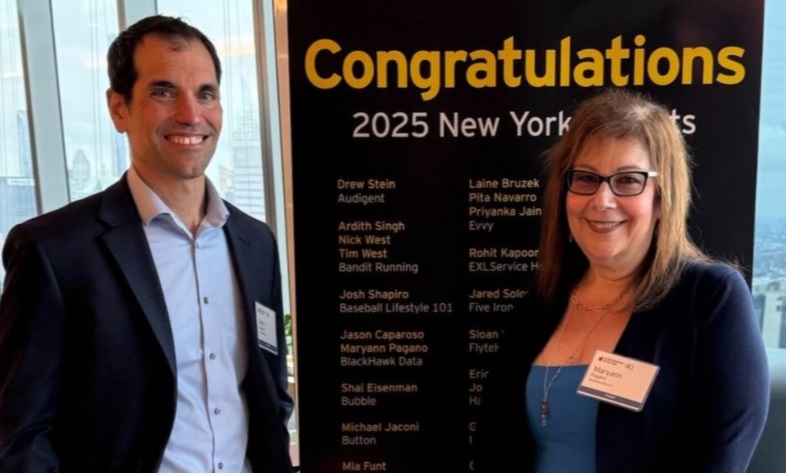Maryann Pagano and Jason Caparoso started BlackHawk Data in 2018 with a simple mission.
“The idea was to be able to bring enterprise technologies to the masses,” Caparoso said “We wanted to give IT to the people. This way, you can take that same level of security that JPMorgan has and bring it to anyone. When you do that, you also have to provide the services and the management behind it, especially in the non-profit sector and public sectors that don’t have the staff to be able to support those technologies.”
BlackHawk, No. 19 on the 2025 MSP 501, is one of 39 women-owned MSPs on this year’s list. CEO and majority owner Pagano and CTO and minority owner Caparoso previously worked together at IT consultant Presidio and BlueWater Communications before starting BlackHawk in New York City. Their two-person MSP has grown to 61 employees with rapid revenue growth each year. BlackHawk concentrates mainly on cybersecurity for non-profits, healthcare and aviation industries – the MSP counts the three major airports in the New York City area as clients as well as smaller airports in other cities. The Port of Authority of New York and New Jersey is also a customer.
BlackHawk Data manages the airports’ technology ranging from cyber security, server and network management to back-end systems for ticketing, concessions and luggage handling.
Contracts with the airports helped BlackHawk grow to more than 20 people by 2020 before COVID hit.
“That’s when we started with non-profits,” Caparoso said, “because a lot of healthcare services still needed to run. They were a completely underserved market, it turned out and were having all kinds of struggles.”
He said BlackHawk moved deeper into home health services after COVID hit in 2020, providing services including 24/7 monitoring and IT support that were far less expensive than larger firms were offering.
“They really needed a lot of help,” he said. “We figured out how old their infrastructure was and when things were broken. We actually wound up hiring throughout COVID, going from 12 people in 2020 to 21 at the start of 2021. Then when things started to open up more, transportation started coming back by the end of 2022. In 2023 we started to develop more of a national practice.”

BlackHawk Data founders Maryann Pagano and Jason Caparoso
Using its large New York airports for references, Black Hawk started signing up smaller aviation sites around the country. It now operates in 11 states.
“We’re hiring more people,” Caparoso said. “It’s just tough to find the right people.”
Two big drivers for Black Hawk in 2024 were: a return to travel helped its transportation business, and cybercriminals stepped up attacks on non-profits. “We see cybersecurity pressure mounting on these small organizations,” Caparoso said. “The level of attacks that have actually increased on non-profits and the public sector has been tenfold from where it was when we started. I think attackers have realized that usually those organizations are not as well guarded and lack the staff and the resources, but they also hold the keys to a whole lot of wealthy people and organizations. It seems like they're always trying to steal the donor database, that seems to be the attack vector that they're looking for.
“Malicious people that are trying to attack it to either get donor information or try to actually re-script the page so that donations go somewhere else. instead of them. They’re constantly getting hit with bots. These [non-profits] are doing wonderful work out there, and you get people that are doing this. It’s unbelievable.”
He said BlackHawk uses AI to help deal with security alerts.
“Everybody loves AI, it’s the buzzword,” he said “It’s changed a lot of what we do. We see it on the internal side for automating our alerts and trying to quiet down the noise. If we get these flurries where you get 20, 30, 50, alerts in a second, you have guys in there trying to manually decipher what's going on. Now you can take out 80% of the noise with the automated tools.”
Caparoso said BlackHawk’s AI strategy is to find a use case where it is a good fit instead of forcing it on a customer. “We try to keep it simple,” he said.
